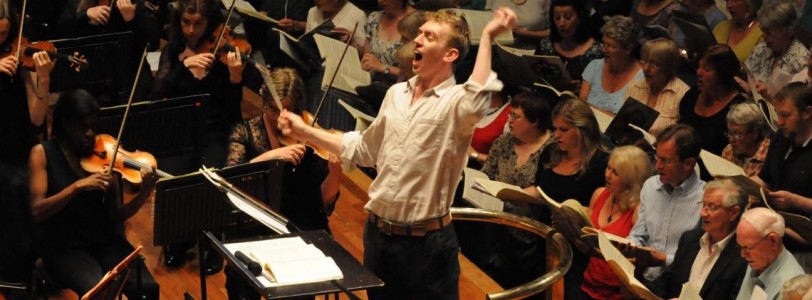What happens at Making Music, and what was the initial drive in setting it up?
Making Music is a national membership organisation for amateur music groups. We have around 3100 members, from choirs, orchestras and music clubs to steel bands, samba groups and festivals. We support them with the organisational aspects of running a group, so for example, registering as a charity, recruiting members, insurance and copyright advice.
We started up in 1935, at the height of the great depression, when amateur choirs, orchestras and music clubs were struggling to promote concerts and even to survive. A group of influential musicians decided to create Regional Federations of Music Societies to help amateur groups exchange information and music, avoid clashes of concert dates and arrange professional artist tours in order to make their events more financially viable. We then grew and eventually changed our name to Making Music in 2000.
What is your role within that?
About a year ago we were left a donation from the late Pauline Thompson. Pauline was a passionate choral singer throughout her life, but she had observed something that a lot of our groups also report; that there are fewer young people singing and playing in amateur music groups, and that a lot of young people are very active singers/players while they are in education, but then stop when they leave school or university. My role was created to research the reasons for this and to support our members to get more young people taking part in music making opportunities.
How does Making Music help young people?
We have over 3100 music groups across the UK that young people can join – a massive range of groups for musicians of all shapes and sizes, so there really is something for everyone. There's a huge body of evidence that being part of a music group can help improve physical health, mental health and wellbeing, combat loneliness and isolation and support the development of other 'soft' skills valued by employers, for example, being part of a team and communication skills.
Can you tell me a little about the roots of community music? Why is it important?
For me, community music is really important because it brings ordinary people together to create and perform music. It's great when professional musicians perform, but music shouldn't just be for professionals – everyone who wants to should have the opportunity to make music, in the same way that everyone who wants to should have the opportunity to play football, or go for a run, or be in a drama group. Community music helps people and communities to thrive and keeps music alive for everyone to enjoy.
What do you think the main benefits are for people taking part?
There are so many benefits of being in a music group. For many people simply having the opportunity to make music on a regular basis with other people is enough in itself – being able to switch off from the stress of everyday life for a couple of hours a week and throw yourself into something totally different. Lots of people find it's a chance to meet new people and make new friends – so many of my close friends are people I've met in choirs I've sung with over the years. Two of my good friends met at a choir I used to sing with, got married and are now expecting their first baby. On top of all this, there's a growing body of evidence of the physical and mental health benefits of music. This study came out only the other month, for example, finding that singing in a choir can boost immune protein levels and help cancer patients.
Do you find that the participants have similar backgrounds, or similar experience with music?
This really varies from group to group – there's a vast range of backgrounds and experience out there. Even within one group, there may be people of all different ages and musical experience. For me, part of the beauty of being in a music group is getting to know people who are different to you and who you might not normally have the opportunity to interact with.
Do people have to be grade 8 in their instrument, is there any barrier to entry?
No. There are groups where you do need to be grade 8 in an instrument, groups where you don't need any grade exams, groups where you have to audition, groups where you can just turn up, groups for singers who haven't sung ever in a group and can't read music… Whatever your musical standard and expectations, there'll be a group you can join.
And finally, how can people find their local community music group?
You can search for your nearest Making Music group on our website.
Image via makingmusic.org.uk
If you are a community choir, orchestra or band and you want to reach out to young people please go to artsawardsupporter.com/makingmusic to find out more






0 Comments